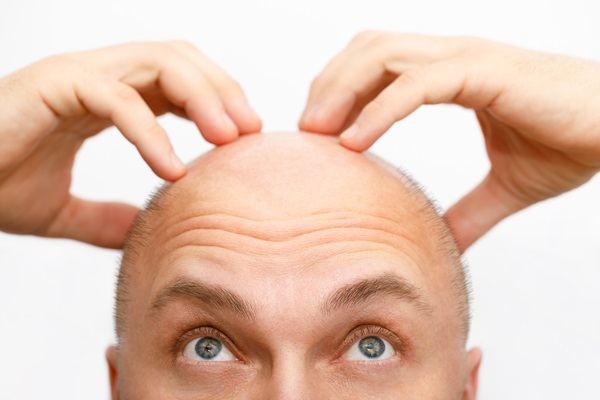What to Expect Before Receiving Hair Loss Treatment

When experiencing hair loss, you might get frustrated and want to jump right into finding a hair loss treatment. However, before making that leap, it is important to consider and research all the available options. A good place to start is by seeing a certified doctor who can evaluate your condition and determine an effective treatment plan. This post will discuss what kind of tests may be involved in this process so that you know what to expect during your first visit.
What to expect during your first appointment
The first step in finding an effective hair loss treatment is to schedule a consultation with a doctor. This will include a physical examination, reviewing the patient’s symptoms and medical history, and testing in an effort to determine the extent to which they are affected by alopecia. In addition, it may be a good idea to bring in or provide a list of any medications or supplements (prescription or over-the-counter) the patient is taking. In most cases, the first appointment lasts no more than an hour.
Physical examination
Before the doctor can determine a hair loss treatment, they will conduct a painless physical exam of the patient’s scalp and hair. The scalp examination involves the doctor looking for signs of inflammation or infection, such as skin rashes, scabs, and in-grown hairs (hair that grows into the skin). The doctor will examine the hair strands’ thickness, how much oil they produce, how quickly they grow, and their health.
This exam aims to assess the extent to which the patient’s hair loss has progressed. It is also used to determine abnormalities in the scalp that might cause the condition.
Additional testing
After the physical examination, the doctor may conduct any of the three tests: a blood test, pull test, and scalp biopsy.
Blood work is the number one test patients should expect before receiving their hair loss treatment. The doctor will perform a complete blood count (CBC), which measures many aspects of the patient’s health. The CBC gives an overview of how well the patient’s body functions and can help determine if they are healthy enough to receive treatment. A CBC is also useful in determining whether any underlying conditions may contribute to the patient’s hair loss. If additional conditions are present, it may be possible to treat them simultaneously with medication or surgery.
Depending on the extent of the patient’s hair loss, the doctor may perform a pull test. The doctor will perform the test by grasping small clumps of hair at their base and gently pulling to see how easily the strands come out of the patient’s scalp. If the strands do not come out easily, the follicles are still intact and able to produce new hair if treated appropriately. However, if the strands come out easily, the follicles have been destroyed, and the patient will experience further thinning as time goes on.
A scalp biopsy involves removing a small amount of skin from the scalp. The tissue removed during the procedure is examined under a microscope to determine if there is evidence of any signs of cellular or genetic damage that may be causing hair loss. Patients experiencing significant hair loss and suspected to have telogen effluvium, alopecia universalis, or androgenetic alopecia (commonly known as male pattern baldness) will likely undergo a scalp biopsy before the doctor determines a hair loss treatment.
Review of current medications and supplements
Some medications can interfere with the growth of new hair, and some supplements can have a similar effect. After reviewing the patient’s current medications, topical and oral, the doctor will advise whether or not it will be difficult for them to see results from their recommended treatment plan. They will also advise which medications or supplements (if any) must be stopped before the hair loss treatment plan begins.
Review concerns, expectations, and goals
Before beginning any treatment, especially a hair loss treatment, it is important to have a clear understanding of what to expect from the treatment. Once the doctor receives all the needed information to determine a diagnosis, they will craft a treatment plan. Of course, explaining how they came to their conclusion to the patient. They will explain the steps of the hair loss treatment plan, in turn helping the patient set realistic goals and expectations.
It is also important to consider any concerns that might arise during or after treatment. During each appointment (to be determined), patients will have the opportunity to ask questions and have an in-depth discussion about their recommended treatment plan before proceeding with the next steps.
Call us today to schedule a consultation!
The first appointment is the most important because we perform an in-depth medical history review, physical examination, and testing. This helps us determine the cause of your hair loss and identify additional conditions that may need treatment. Not only will this help us, but it will help you stop wasting time on ineffective treatments.
We hope you have found this article helpful. To schedule a consultation, call our Schaumburg office at (800) 518-9307 today and speak with our friendly staff. We look forward to seeing you soon.
Check out what others are saying about our services on Yelp: Hair Loss Treatment in Schaumburg, IL.
Recent Posts
Hair loss can usher in mixed emotions and damper your self-esteem, whether or not you were expecting the day. Fortunately, hair plugs or grafts can provide patients with a full head of their natural hair. If thinning or balding is something you are experiencing right now, help is available at our Schaumburg office. First, review…
Hair thinning treatments are far more versatile than they get credit for. Our team works closely with each patient to determine the root cause of their thinning tresses and craft an effective treatment plan. Take a closer look at common causes of hair thinning and the various methods we can use to treat it.Many factors…
Hair loss can significantly impact people, affecting their self-confidence and interpersonal relationships. Fortunately, hair grafting, also known as hair transplantation, provides a viable option to restore the natural hairline. If you are still deciding whether to pursue a hair graft, here are three reasons to consider it.Unlike temporary solutions like wigs or hairpieces, a hair…
For those with wrinkled skin, Botox® injections can provide great relief. While it may be a natural sign of aging, the presence of wrinkles can be frustrating to some. Thanks to the scientific research and testing in the 1990s by several dermatologists, Botox® was approved in 2002 by the Food and Drug Administration for cosmetic…


